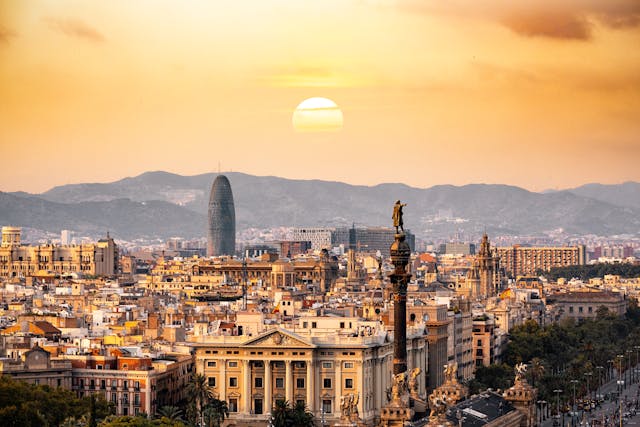Spain has long been celebrated as a premier travel destination, renowned for its stunning landscapes, historic cities, and vibrant culture. However, the country’s immense popularity has brought with it significant challenges tied to overtourism, pushing both the government and local communities to take action to ensure sustainable tourism practices.
Overtourism: A Growing Concern
In recent years, cities like Barcelona and Palma de Mallorca have faced the pressures of overtourism, where excessive visitor numbers strain local infrastructure, increase living costs, and alter the cultural fabric of neighborhoods. Some areas have seen their resident populations decline due to properties being converted into short-term rentals.
During the COVID-19 pandemic, Spain experienced a temporary decline in tourism, giving locals a brief respite. However, post-pandemic, regions like the Canary Islands and Balearic Islands have seen record numbers of tourists, reigniting concerns over the sustainability of current tourism models. Residents have voiced frustration over overcrowded streets, rising rents, and diminishing quality of life.
Public Backlash and Anti-Tourism Protests
In response to the ongoing challenges, several protests have erupted in key tourist hotspots. In 2024, tens of thousands in the Canary Islands advocated for a temporary halt to tourism until more sustainable solutions could be implemented. Similar demonstrations were seen in Barcelona and Mallorca, where locals demanded measures to address unaffordable housing, overcrowding, and the loss of their cities’ unique character.
Regulatory Measures and Reforms
To tackle overtourism, Spanish authorities and local governments have introduced various policies, such as:
- Restrictions on Short-Term Rentals: In Barcelona, officials are phasing out short-term rentals to combat rising housing costs. Mayor Jaume Collboni has emphasized the need to prioritize affordable housing over unregulated tourist accommodations.
- Tourism Taxes:
Authorities are considering increasing taxes on short-stay cruise passengers to manage the influx of day tourists and fund public infrastructure improvements. - Regulation of Unlicensed Tours:
Efforts are underway to curb unregulated “pirate” tour operations, particularly in the Canary Islands, to protect both tourists and local businesses.
Community-Led Solutions
Beyond government actions, local communities are taking independent initiatives to balance tourism and daily life. For example, in Binibeca Vell, a village in Menorca, residents voted to restrict visiting hours, ensuring that tourism does not interfere excessively with their routines.
Looking Ahead
Spain has not implemented an outright ban on tourism, but the measures being introduced signal a shift toward more responsible and sustainable tourism models. The goal is to preserve the nation’s cultural heritage and natural beauty while ensuring that tourism benefits residents and visitors alike. This transition highlights the importance of balancing economic benefits with social and environmental well-being, setting an example for other popular destinations worldwide.
- Daylight Savings Time 2025: When Will the Time Change?
- Nagaland State Lottery Results – Check Today’s Winning Numbers
- India vs New Zealand Final 2025: Match Time, Players, and Key Details
- Škoda Kushaq and Slavia Get Price Cuts and New Variant Names
- Samsung Galaxy A56 5G and A36 5G: A New Era of Mid-Range Smartphones
astrological predictions astrology Australia open auto Automotive Bigboss Bollywood car Castaic fire Citizenship cricket Crypto daily horoscope Darshan rawal Donald trump Executive Order Festivals Finance Football Georgia HMPV China horoscope horoscope today Lottery Mg majestor mobile phones Movies Netaji Subhash Chandra Bose jayanti oneplus 13r rashi rashiphal Result S25 ultra sports Super bowl 2025 Umar nazir mir Upsc Usha vance Virendra Sehwag zodiac zodiac sign आज का राशिफल हिंदी हिन्दी हुंडई एक्सटर


Leave a Reply